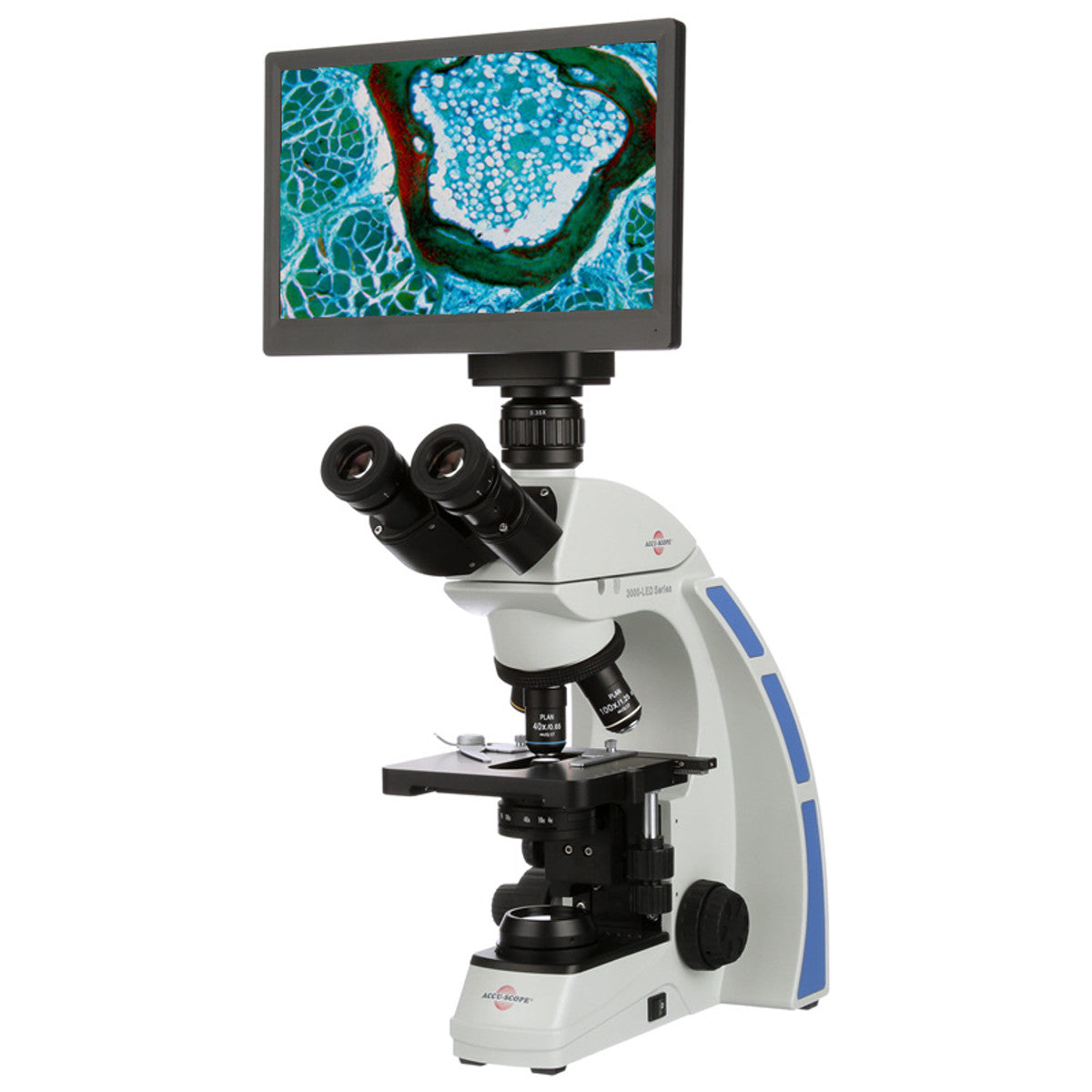ACCU-SCOPE 3001-LED Trinocular Microscope - TOP PICK VET MICROSCOPE
Couldn't load pickup availability
Follow Us Online!
For an official Quote Email us at info@mundaymicroscope.com
International Buyers - Please Request Quote with ship to address
Have questions or need Faster Shipping? Call 919-775-5596
Includes Accu-Scope Excelis HD in Camera Package option
Optical System: Infinity Optical System, f = 180mm, Anti-Mold
Viewing Head: Binocular or Trinocular Siedentopf type, inclined 30°; interpupillary distance adjustment 48-75mm, 360° rotatable
Eyepieces: HWF Plan 10x eyepiece, 20mm field of view with built-in diopter adjustment; a pointer is standard in one eyepiece; eyepieces are locked-in to prevent classroom tampering. Eyepiece accepts a Ø20.5mm reticle
Nosepiece: Rear facing quadruple, ball bearing nosepiece with positive click stops to ensure parcentration
Objectives: Infinity Plan Achromat 4x, 10x, 40xR* and 100xR oil* -- (*spring-loaded)
Stage: Mechanical Stage size 140mm X 132mm with X-Y movement range of 76mm X 50 mm
Condenser: N.A. 1.25 Abbe condenser (with slot for sliders) on a rack and pinion with iris diaphragm; glass lens in condensing system protects iris diaphragm from classroom tampering
Illumination: 3-watt LED with variable intensity control; LED bulb is rated for over 25,000 hours of continued use
Focusing System: Coaxial focusing system with adjustable tension control and upper limit stop to prevent accidental damage to slides; all metal gears, brass fine focus gear
Accessories: Dust cover, immersion oil and instruction manual, universal power supply 110v-240v
Microscope Dimensions (LWH): 387mm x 196mm x 391mm
Physical Weight: 16 lbs.
Shipping size: 19x11x19 inches
Shipping weight: 21 lbs.
Common applications in the veterinarian field for this microscope would be
-
Blood Cell Analysis: Veterinarians use microscopes to examine blood smears, allowing them to identify and quantify different types of blood cells (red blood cells, white blood cells, platelets) and detect abnormalities like infections, anemia, or blood parasites.
-
Urine Sediment Analysis: Microscopic examination of urine sediments can reveal information about kidney function, urinary tract infections, crystals, and other urinary abnormalities.
-
Fecal Examination: Microscopy helps veterinarians identify intestinal parasites such as roundworms, hookworms, tapeworms, and protozoa in fecal samples.
Our Pick for the top Vet Microscope!
If you would like to add a camera to your system we have lots of options here
Commonly Asked Questions
Please refer to our commonly asked questions section to find out more information about Microscope Marketplace's payment, shipping, return and warranty policies















